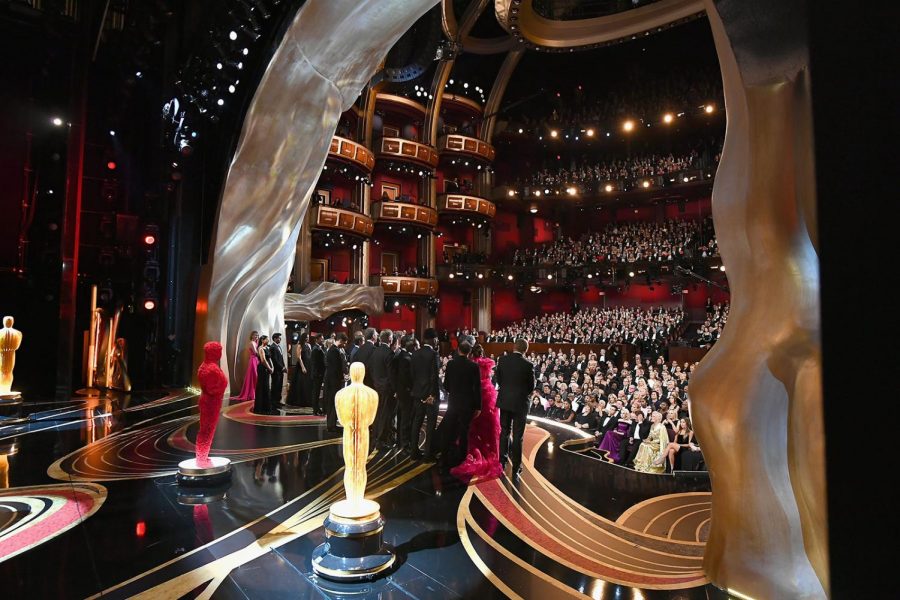Banerjee: The Oscars don’t conquer their diversity issues
The 2019 Academy Awards seemingly try to right previous wrongs when it comes to diversity, but their pitfalls outnumber their successes.
February 25, 2019
This is the first year I can remember that I did not watch the Oscars. It has been a long-held tradition in my family for years, and maybe it’s because I wasn’t in my living room with my family, or maybe it’s because the Academy completely fumbled this year’s nominees and winners, but the 2019 Oscars were a very missable event.
In light of #OscarsSoWhite, which flooded social media in previous years, it seems that the Academy wished to make progress. The Academy awarded Best Picture to Peter Farrelly’s Green Book, finally gave Spike Lee a nod after his illustrious 33-year career with Best Adapted Screenplay, and celebrated Regina King’s work in If Beale Street Could Talk. Three black people have been awarded the Oscar in categories outside acting in the history of the award show — two of which happened Sunday night. On a surface level, the Academy made progress.
RELATED: Shaw: Racial stereotypes? They can be a riot.
But the Oscars’ fascination with feel-good narratives and its performative interest in placation ruin any chances of progress. For one, the success of both Green Book and Bohemian Rhapsody is one of the largest detractors from this.
Green Book never manages to stray out of its neatly ordered box of “White and black people can be friends and racism is bad.” Awarding a Driving Ms. Daisy level of commentary afforded by a washed-up, frankly offensive plot structure is a disappointing — yet expected — move from the Academy. Its narrative, which the very people upon which it was based found faulty, is only another white-savior story that cinema doesn’t need.
By awarding one of the most well-known, prestigious film awards to this movie, the Academy refuses to take in any genuine commentary, preferring to placate viewers with the illusion of progress. Green Book isn’t anything more than a group of white men patting themselves on the back for learning not to hate black men.
RELATED: Shaw: It’s time for a gender-inclusive Downtown Iowa City
Further, for Bohemian Rhapsody to win anything in light of both its poor quality (the editing was routinely called out for its technical failures) and the Bryan Singer sexual-misconduct allegations is an overarching mistake in the Oscars’ attempts to right any past wrongs. The #MeToo movement, while less of a constant presence in the public consciousness, has not lost its importance. Singer’s history of alleged sexual misconduct has been public and acknowledged within Hollywood for 20 years. While he was taken off the project halfway through for reasons unrelated, he is still credited as the major director despite his producing credit being revoked. It also is of note that director Peter Farrelly has faced his own share of allegations.
RELATED: Neal: Should we cancel cancel-culture?
Throughout the entirety of the Oscars, Singer is never once mentioned — not in any of the presenters’ skits, not in any of the four award speeches Bohemian Rhapsody winners made. But removing the director from the narrative does not mean the Academy wasn’t indirectly awarding Singer multiple awards. Despite being removed from the project, Singer maintains that he is proud of the work done and that he sees the film as his own. As a gay man, Singer’s involvement in Bohemian Rhapsody, which centers on one of the more important figures in LGBTQ history, is increasingly problematic as well.
While this only scratches the surface as to why the 2019 Oscars failed in its perceived goals toward democracy, the two of the top winners’ successes are another part of a dismaying path that the Academy has run on for a while. It may be naïve to expect more from television awards, but that doesn’t mean there should be no standards applied at all.






